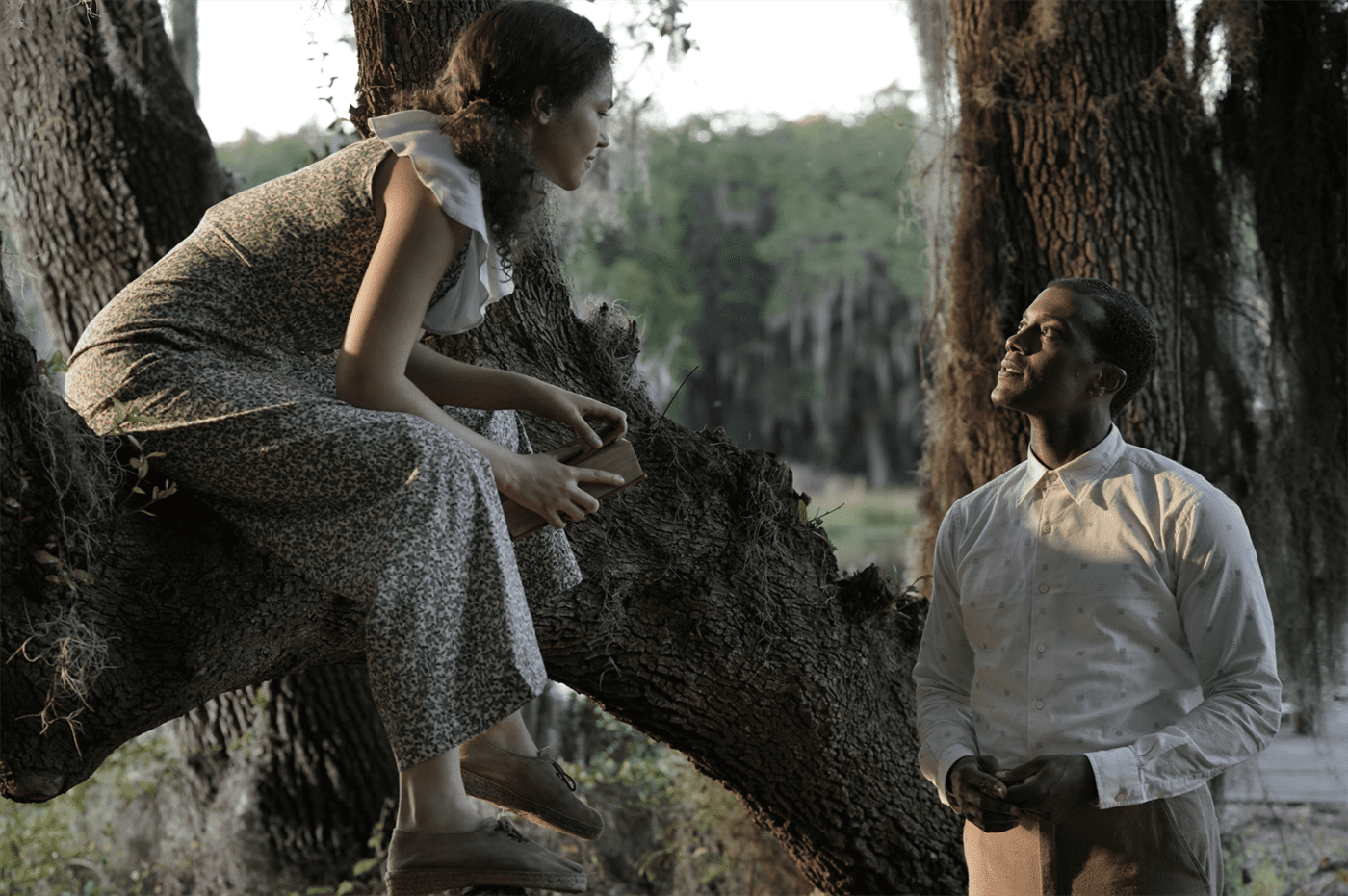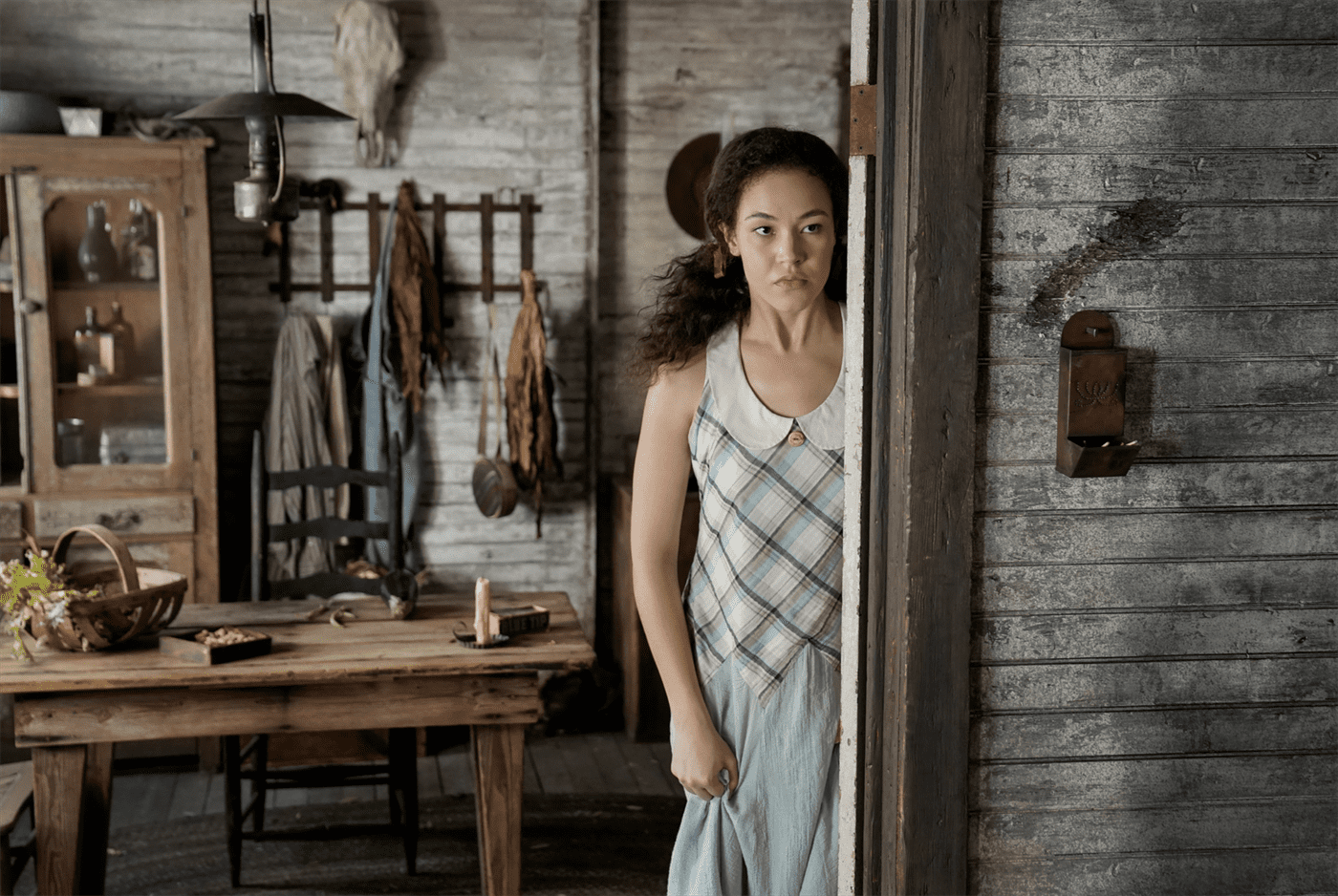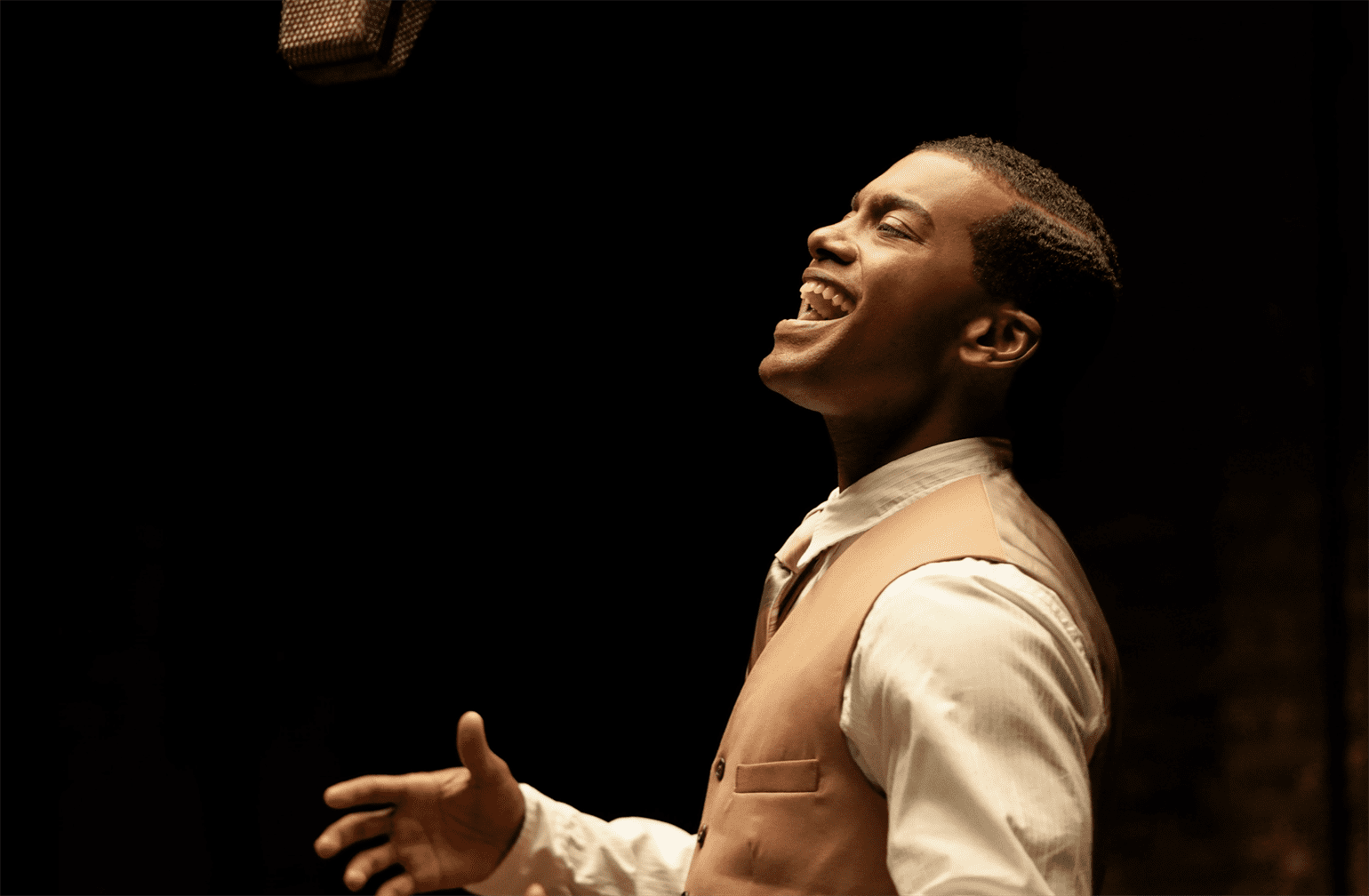Tyler Perry is best known for creating and portraying the comedic elderly woman, Mabel “Madea” Earlene Simmons, as well as producing countless films and television shows, so when sitting down to watch his latest film, “A Jazzman’s Blues,” I was surprised to learn it was a dramatic tale of forbidden love.
The film spans two hours and eight minutes. For me, it did not feel long, but the drama certainly presents stereotypes you’d expect from Hollywood, dare I say “Oscar-fishing.” But I was still very pleased with Perry’s execution and directional choices in this film.
Primarily set in 1940s Georgia, this story follows two lovers, Bayou (Joshua Boone) and Leanne (Solea Pfeiffer), who open our story, bonding over being outcasts in their community.
Bayou, a 17-year-old mama’s boy, suffers from always remaining in the shadow of his older brother, Willie Earl (Austin Scott), who is talented at playing the trumpet, much like their aspiring musician father. Leanne, a 16-year-old light-skinned beauty, on the other hand, is cast out by her community, referred to as “Bucket” by her peers as she was abandoned by her mother like an “empty bucket” and forced to live with her rapist and abusive grandfather.
The two teenagers carry out a secret, forbidden romance for the entirety of the summer, growing closer and inevitably falling in love. One fateful day, their romance is shattered when Leanne’s mother returns to take her north to Boston and start a new life, passing as a white girl.
The film then jumps forward 10 years to when both lovers’ lives have changed drastically. Bayou is still living with his mother and working for her business. Leanne, on the other hand, returns to Georgia now married into an incredibly racist and powerful family.
For the next 80 minutes, the movie continues to dive into the forbidden romance of the two while also furthering the feud between Bayou and his brother Willie Earl. Eventually, Bayou inadvertently and inevitably falls into jazz singing while Willie Earl turns to unhealthy coping mechanisms as a means of suppressing his trauma and anger. The two spend much of the movie dealing with frustration toward one another.
The film certainly has no trouble with pacing and creating compelling characters played by a cast that puts on a convincing performance.
The plot also does not hold back. It’s clear Perry has moved out of his comfort zone. Rather than laughing hysterically by the end of this film, I was instead in tears. I was emotionally drawn into this relationship between Bayou and Leanne, whose romance has been compared by critics to the relationship in “The Notebook.” The film was filled with intense melodrama and twists that had you rooting for the couple the whole time. For me, this romance was even better than that of “The Notebook,” as I finally got to step away from the white-washed Romeo and Juliet forbidden romance and triumphs and tribulations of a relationship with awful timing.
However, what I believe makes this story much more compelling is that it’s not just timing for these two lovers, but rather the stakes are literally life and death as the circumstances revolve around racism. As Leanne passes for a white woman, her relationship with Bayou becomes more than just a familial restricted relationship. I don’t normally jump the gun to watch a drama that revolves around romance, but this film really captured the hardships of loving in a time of segregation, a perspective hard to find in Hollywood.
Beyond romance and race, this film presents other unique themes and perspectives that I found shaped Perry’s venture into some serious filmmaking. “A Jazzman’s Blues” incorporates some unique biblical tropes and references. The brothers Bayou and Willie are very similar to Cain and Abel. This idea was also very present in the novel “East of Eden” by John Steinbeck, which I found to be a heavy inspiration for the movie’s plot: jumping ahead in time, a struggling romance, feuding brothers influenced by their father, as well as other socio-economic and political hardships to overcome.
In many ways, this film is a very “by-the-book” Hollywood drama. Its outline is digestible, although the content is certainly heavy. A fair warning not to expect to come out of the film with a smile on your face; unlike other black-centered storylines, these characters, unfortunately, face many of the harsh realities of the time. I was very surprised and happy, however, with the formidable plot twists Perry threw into his screenplay.
For those of you who are music lovers, you’d certainly love the rhythmic pieces of Aaron Zigman’s culturally rich score. Of course, with the music arranged by trumpeter Terence Blanchard, he and Zigman shape a soundtrack that provides a soulful feeling. Boone’s performances in many of these numbers also stand out and Debbie Allen’s jubilant choreography heightened my placement in this 1940s cinematic experience Perry creates.
Overall, this is my favorite piece of content by Perry as I felt it came from a place deep in his heart. Knowing Perry’s background, this was a new step for him, and he certainly found his voice in this genre.





